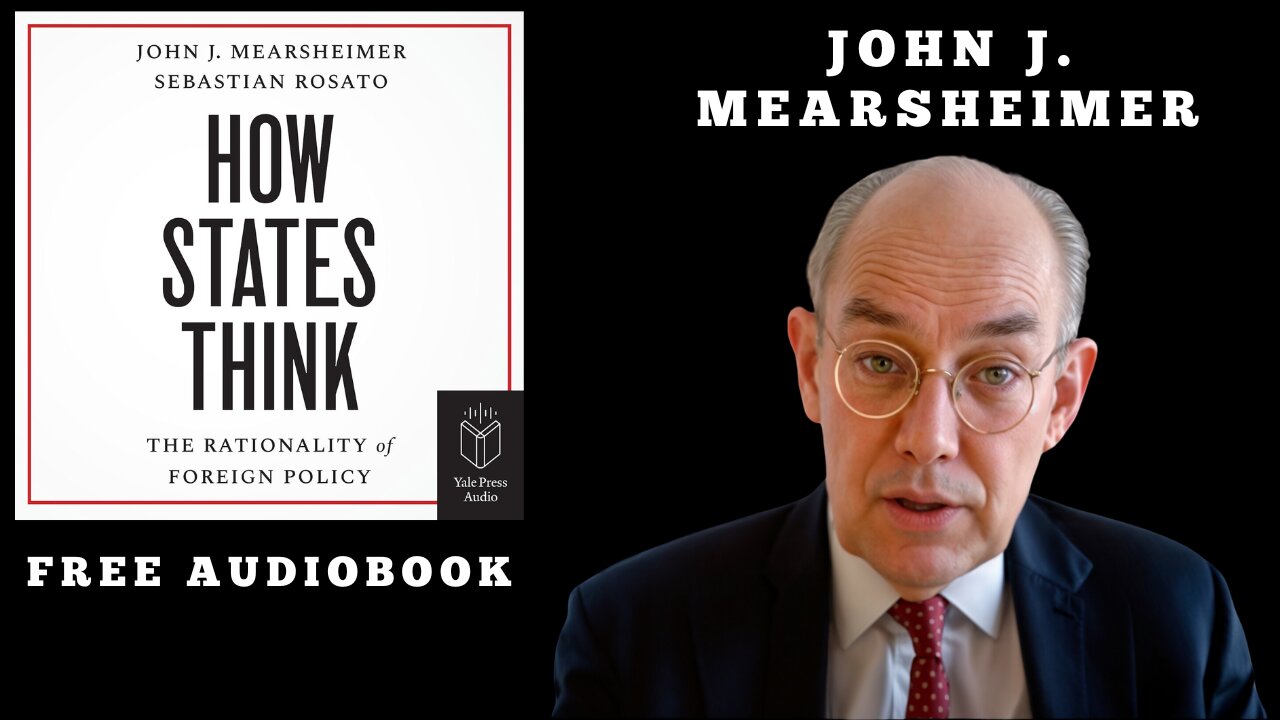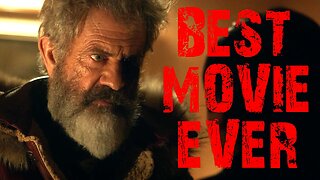Premium Only Content

John Mearsheimer - How States Think Audiobook Free - The Rationality of Foreign Policy
#johnmearsheimer #howstatesthink #foreignpolicy #warukrainerussia
How States Think Audiobook Free - John J Mearsheimer - The Rationality of Foreign Policy
✅ Free audiobook: https://summarybooks.shop/free-audiobooks/
Reasonable states bring together the opinions of influential decision-makers in a deliberative process characterized by lively and unrestrained discussion. Some logical decisions in international politics come from a deliberative process and are based on reputable beliefs about how the world functions. This indicates that Russia made a logical decision to attack Ukraine. Think about the fact that Russian authorities relied on a solid theory. The majority of analysts contest this assertion, claiming that Putin was determined to annex Ukraine and other Eastern European nations to expand the Russian Empire. While this would satiate Russian nostalgia, it makes little strategic sense in the contemporary world. According to President Joe Biden, Putin wants to unite all Russian speakers as the head of Russia. HR McMaster, a former national security adviser, said, "I mean, I just think it's irrational." I don't think his acting makes sense since he's afraid, do you? Russia's return to its former glory as a nation is his top priority. He's motivated by that, but the reality is that Putin and his advisers applied a strict balance of power theory to their thinking, seeing the West's attempts to forge Ukraine into a frontier stronghold as an existential threat that must not be allowed to continue. This reasoning was presented by Russia's president in a speech outlining his intention to go to war. The situation for Russia has been getting worse and riskier every year as a result of NATO's eastward advance. We can do nothing except watch these developments unfold in silence. He continued, "This would be an utterly reckless thing to do for us." It is a question of life and death for our country, as well as our historical future as a people. This is a fact, not an embellishment. It poses a serious danger not just to our interests but also to our state's sovereignty and very existence. It is the red line, about which we have talked a great deal. They've gone over it. To put it briefly, this was a war of self-defense meant to stop an unfavorable change in the balance of power. It is noteworthy that Moscow decided to use strong diplomacy to address the rising threat on its borders, but Russia's security concerns were not taken seriously by the US and its allies. Given this, Putin chose to go to war, which many predicted would lead to the Russian military annexing Ukraine. Russia would easily win this war's first tactical phase, according to David Ignatius of the Washington Post, who described the opinions of American officials shortly before the invasion. Should it materialize, Russia's massive force stationed along Ukraine's borders could likely capture the nation's capital, Kiev, in a matter of days, and take over the entire country in less than a week. In fact, the White House was informed by the intelligence community that Russia would defeat the Ukrainian army in a few days. A deliberate process also led to the Russian decision to invade. Once more, a lot of experts contest this, saying that Putin acted alone and did not receive significant advice from military and civilian officials who would have advised against his rash attempt to seize power. The head of the Senate Intelligence Committee, Senator Mark Warner, states that hardly many people have directly impacted him. We are therefore afraid that this type of reclusive person has developed a megalomaniacal belief that he is the lone historical figure capable of reconstructing the Soviet sphere of old Russia. Michael McFaul, a former ambassador to Moscow, says that Putin is isolated and devoid of correct information, which may be contributing to Russia's irrationality. The evidence at hand points to a different conclusion. Putin conferred with his subordinates before declaring war because they held similar opinions about the nature of the threat facing Russia. A 2008 memorandum by William Burns, the ambassador to Russia at the time, reflects the consensus among Russian leaders recognizing the risks associated with Ukraine's engagement with the West. In more than two and a half years of talks with key Russian figures, from knuckle draggers in the shadowy corners of the Kremlin to Putin's most scathing liberal adversaries, it warned that Ukrainian admission into NATO is the brightest of all red lines for the Russian elite, not just Putin.
-
 34:12
34:12
inspirePlay
1 day ago $5.65 earned🏆 The Grid Championship 2024 – Cass Meyer vs. Kelly Rudney | Epic Battle for Long Drive Glory!
87.2K8 -
 17:50
17:50
BlackDiamondGunsandGear
15 hours ago $2.98 earnedTeach Me How to Build an AR-15
61.4K6 -
 9:11
9:11
Space Ice
1 day agoFatman - Greatest Santa Claus Fighting Hitmen Movie Of Mel Gibson's Career - Best Movie Ever
119K47 -
 42:38
42:38
Brewzle
1 day agoI Spent Too Much Money Bourbon Hunting In Kentucky
80.6K12 -
 1:15:30
1:15:30
World Nomac
23 hours agoMY FIRST DAY BACK in Manila Philippines 🇵🇭
62.6K9 -
 13:19
13:19
Dr David Jockers
1 day ago $11.81 earned5 Dangerous Food Ingredients That Drive Inflammation
81.3K17 -
 1:05:13
1:05:13
FamilyFriendlyGaming
1 day ago $15.95 earnedCat Quest III Episode 8
131K3 -
 10:39
10:39
Cooking with Gruel
2 days agoMastering a Succulent London Broil
84.3K5 -
 22:15
22:15
barstoolsports
1 day agoWhite Elephant Sends Barstool Office into Chaos | VIVA TV
59.4K1 -
 3:30:40
3:30:40
MrNellyGB
21 hours ago🔴LIVE - GRINDING MARVEL RIVALS RANKED! | #RumbleTakeover #RumblePremium
40.9K1